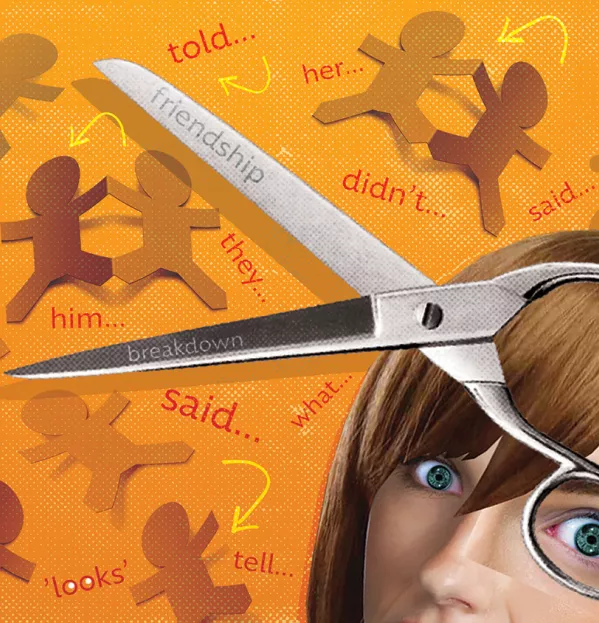I was having trouble with the girls again. Molly and Poppy, who had been thick as thieves since the Easter holidays, were now unravelling faster than an Andrex puppy’s toilet roll.
The source of the friendship breakdown was traced back to Lizzie, who overheard Molly say she didn’t want to take part in the talent show with Poppy and faithfully reported this back to Poppy.
Esme sprung to Lizzie’s defence by confirming that Molly had been ignoring both her and Lizzie, and giving them “looks”. Molly admitted this was partly true but only because Chloe had told her to.
We sent for Chloe, who strenuously denied having ordered anyone to deliver “looks”, but added that Lizzie and Esme used to be her best friends until they left her WhatsApp chat group and set up another one with Hannah.
Hannah agreed this was the case (although as a mitigating factor argued they only did it because Lizzie told her that Chloe took her rubber without asking, and lent it to Hannah who lent it to Esme who said it was hers and put it in her pencil case).
Esme immediately rushed to the defence, producing her pencil case and the rubber as evidence, along with Jessica as a witness to confirm that she had seen Esme buy the rubber when Esme’s mum took them into town last Saturday.
Everyone agreed that Jessica hadn’t upset anyone.
‘Small things are of huge importance’
By the time we’d reached this point, two key facts had emerged: 1) when it comes to girls’ friendships, small things are of huge importance; and 2) the chances of me getting to mark a few books and eat a cheese sandwich before the end of lunchtime were nil.
These were problems that needed to be unpicked slowly and sensitively before everyone could leave happy.
I gave three house points to Jessica and got to work. Some 20 minutes later, we had covered what went wrong; how people should have reacted; why what Esme had said to Hannah in Year 3 was now water under the bridge; and what everyone liked about each other. Finally, I got smiles all round again.
The goal these days is for gender-free classrooms, where teachers make a conscious effort to treat all children the same, making no allowance for gender. I’m not convinced the children are quite on board with this.
Later that day, Max left the football session to tell me Noah had been calling him names. I summoned Noah, who denied this, but said Max had been trying to trip him up and wasn’t passing to him.
“Right,” I said, taking a similar approach to the girls. “I think we’d better sit down and have a long chat about this to find out exactly what you’ve both been doing to upset each other and why.”
They shot each other a sideways glance.
“Or…” I continued, “you could both shake hands, say sorry and go back to the game.”
“Sorry Max,” said Noah, leaping up with relief.
“Sorry,” said Max, shaking hands happily before they both raced back towards the action.
Friendship issues: sorted.
Jo Brighouse is a pseudonym of a primary school teacher in the West Midlands. She tweets @jo_brighouse
